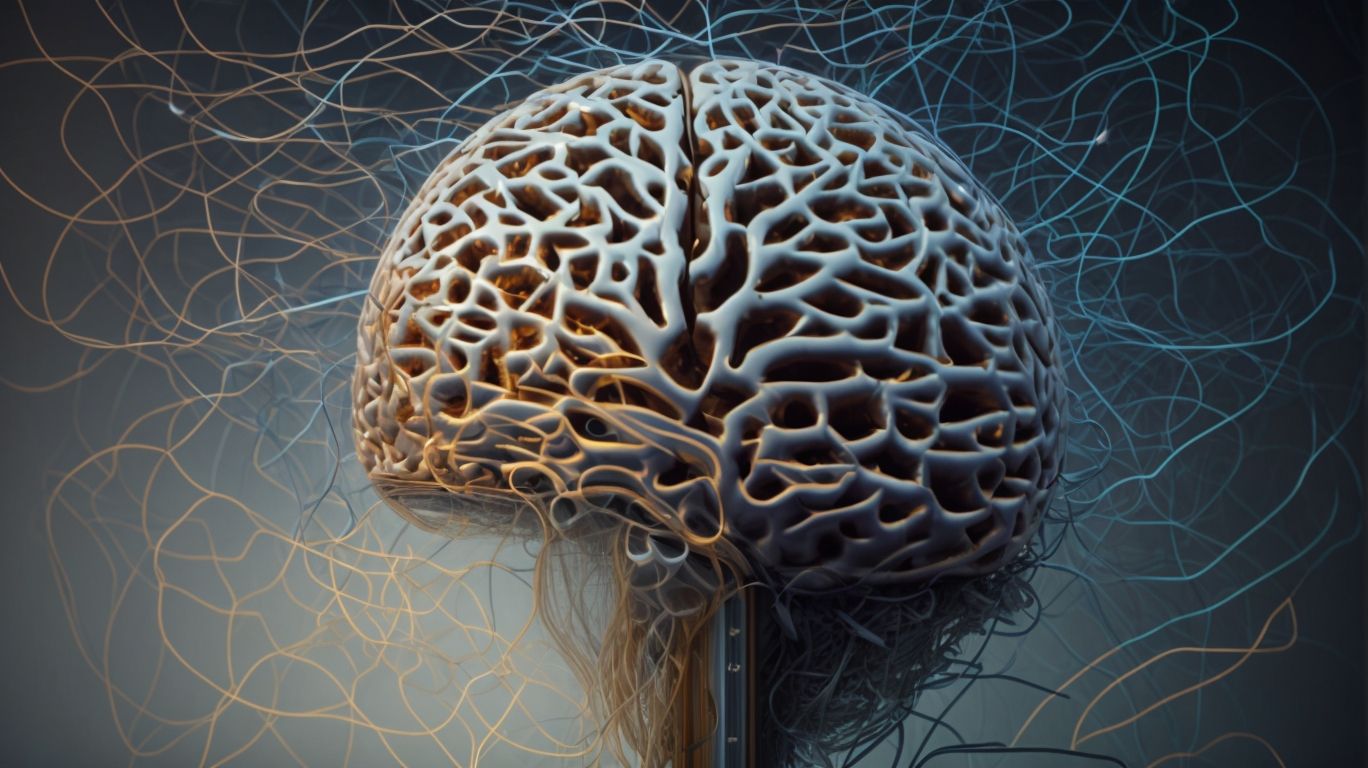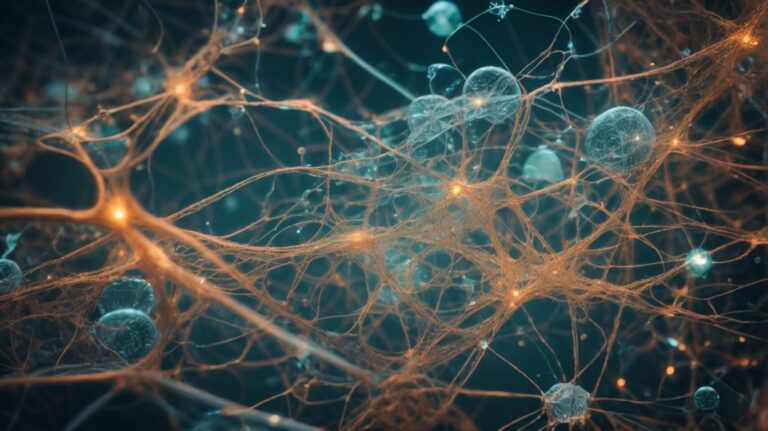Have you ever found yourself idealizing someone or something in your life? Idealization is a common psychological concept that plays a significant role in shaping our perceptions and behaviors.
In this article, we will explore the ins and outs of idealization in psychology, including its different types and effects. We will also delve into how idealization relates to other psychological concepts and examine the criticisms surrounding its use. So, grab a cup of coffee and get ready to explore the fascinating world of idealization in psychology.
Contents
- 1 Key Takeaways:
- 2 What Is Idealization in Psychology?
- 3 How Is Idealization Used in Psychology?
- 4 What Are The Different Types Of Idealization?
- 5 What Are The Effects Of Idealization?
- 6 How Does Idealization Relate To Other Psychological Concepts?
- 7 What Are The Criticisms Of Idealization In Psychology?
- 8 Frequently Asked Questions
Key Takeaways:
- Idealization in psychology refers to the tendency to view something or someone in an exaggeratedly positive or negative light, often leading to unrealistic expectations and behaviors.
- There are different types of idealization, including positive, negative, and unconscious, each with its own effects on relationships, self-esteem, and mental health.
- Idealization is closely related to other psychological concepts such as projection, disassociation, and cognitive biases, and can have potential criticisms such as unrealistic expectations and disregard for individual differences.
What Is Idealization in Psychology?
Idealization in psychology refers to the cognitive process of forming positive perceptions and exaggerated beliefs about a person, object, or situation, often deviating from reality and impacting mental health.
This phenomenon plays a critical role in shaping an individual’s outlook on the world, influencing their emotions, behaviors, and interactions.
When individuals idealize something or someone, they may overlook flaws, negative traits, or complexities, creating an unrealistic and idealized image. This can lead to disappointment and disillusionment when reality does not align with these idealized perceptions.
In relationships, idealization may occur when one idealizes their partner, projecting their desires and expectations onto them. This can lead to unhealthy dynamics and misunderstandings.
Recognizing and addressing idealization is crucial in promoting realistic perspectives and fostering healthier relationships.
How Is Idealization Used in Psychology?
The use of idealization in psychology is prominently observed in the context of relationships, where individuals may engage in love bombing and idealize their partners during the initial stages of romance, creating an illusion of perfection and satisfaction.
What Are The Different Types Of Idealization?
Idealization manifests in several distinct types within psychology, including positive idealization, negative idealization, and unconscious idealization, each influencing perceptions and behaviors in unique ways.
Positive Idealization
Positive idealization denotes the tendency to excessively idolize and romanticize aspects of life, often leading to unrealistic expectations, and impacting perceptions and mindfulness.
Research has shown that positive idealization can be linked to the formation of unrealistic expectations, influencing an individual’s feelings of satisfaction and contentment.
These unrealistic ideals may stem from societal influences, personal experiences, and media portrayals, shaping individuals’ perception of success, happiness, and fulfillment.
Studies have suggested that individuals who engage in cognitive behavioral therapy may experience a reduction in positive idealization, leading to more balanced and realistic perceptions of life’s various aspects.
Negative Idealization
Negative idealization involves the tendency to excessively focus on the flaws and shortcomings of oneself or others, often associated with cognitive biases and personality disorders such as narcissistic personality disorder.
This skewed perception can lead individuals to view themselves or others through a highly critical lens, magnifying imperfections while minimizing strengths and positive attributes.
Research suggests that negative idealization is closely linked to cognitive biases, such as confirmation bias and attribution bias, which contribute to ingrained patterns of distorted thinking.
In the context of personality disorders, particularly narcissistic personality disorder, this distorted idealization can manifest as a reinforcement of an individual’s grandiosity and a devaluation of others, perpetuating a cycle of dysfunctional behavior and relationships.
Studies have indicated that individuals with narcissistic personality disorder often exhibit an exaggerated sense of self-importance, coupled with a need for admiration and lack of empathy, which further fuel negative idealization tendencies.
Unconscious Idealization
Unconscious idealization refers to the subconscious process of forming idealized perceptions and fantasies, often rooted in past memories and experiences, necessitating exploration and therapeutic intervention.
This phenomenon has a profound impact on mental health, as it can lead to distorted beliefs and expectations, affecting an individual’s relationships and self-image.
Through therapy, individuals can examine and reframe these idealizations, gaining insight into their origins and learning healthier ways of relating to themselves and others.
Therapeutic approaches such as cognitive-behavioral therapy (CBT) and psychoanalysis can help individuals process and integrate past memories, reducing the influence of unconscious idealization and promoting mental well-being.
What Are The Effects Of Idealization?
Idealization exerts diverse effects, influencing interpersonal relationships, self-esteem, and susceptibility to emotional manipulation, shaping individuals’ perceptions and behaviors.
On Relationships
Idealization significantly impacts relationships, often leading to illusions of satisfaction and perpetuating unrealistic expectations, which can undermine the authenticity of interpersonal connections.
When individuals idealize their partners, they tend to overlook imperfections and flaws, creating an idealized image of the other person.
This can result in an unrealistic expectation of perfection, leading to disappointment when such ideals are not met. Idealization may foster a sense of satisfaction based on an illusion rather than genuine compatibility, overshadowing the true dynamics of the relationship.
Consequently, when faced with the inevitable realities of human imperfections, conflict and disillusionment can arise, challenging the foundation of the idealized perception.
On Self-Esteem
Idealization can influence self-esteem, especially in the context of attachment and interpersonal relationships, contributing to fluctuations in self-worth and reliance on external validation.
When individuals idealize others, it can lead to an augmented perception of the partner, sometimes placing them on a pedestal. This can create an imbalance in the power dynamics within the relationship, as well as an increased vulnerability for the individual idealizing their partner.
In the context of attachment theory, idealization can become intertwined with an individual’s attachment style, affecting their expectations of love and connection, and ultimately shaping their self-esteem.
The impact of idealization on self-esteem can be significant, as it may lead to feelings of inadequacy if the idealized image is not met in reality.
On Mental Health
Idealization can have profound implications for mental health, particularly in relation to personality disorders and therapeutic interventions, necessitating mindfulness and cognitive behavioral therapy approaches.
When individuals idealize themselves or others, it can lead to distorted perceptions and unrealistic expectations. This tendency is often associated with borderline personality disorder, wherein an individual oscillates between extreme idealization and devaluation of others.
These patterns of thinking and behavior can significantly impact interpersonal relationships and contribute to emotional instability.
Therapeutic interventions for addressing idealization and its impact on mental health often include mindfulness-based practices to cultivate awareness of thoughts and emotions, allowing individuals to observe and regulate idealizing tendencies.
Additionally, cognitive behavioral therapy (CBT) helps individuals challenge and reframe distorted thought patterns, fostering more realistic and balanced perceptions.
How Does Idealization Relate To Other Psychological Concepts?
Idealization exhibits intricate relationships with various psychological concepts, intertwining with phenomena such as projection, dissociation, and cognitive biases, shaping individuals’ perceptions and behaviors.
Projection
Projection intertwines with idealization, serving as a psychological defense mechanism where individuals attribute their own unacknowledged feelings or traits onto others, influencing interpersonal dynamics and idealized perceptions.
This unconscious process often results in the creation of an illusory image of others. Individuals may see desirable qualities that are actually projections of their own aspirations. As a result, this can lead to distorted expectations and disappointments in relationships.
The idealized perceptions may not align with the reality of the individuals. Projection and idealization can also impact how individuals interpret and respond to the behavior of others. This can influence their judgments and reactions in interpersonal interactions.
Dissociation
Dissociation intersects with idealization, encompassing psychological processes of detachment and emotional disconnection, influencing the formation of idealized perceptions and coping mechanisms.
This intersection manifests in various ways, as individuals experiencing dissociation may create idealized versions of themselves or others as a means of managing overwhelming emotions.
In these instances, idealization serves as a defense mechanism, shielding one from the distress associated with facing reality.
Dissociation can lead to a disconnection from one’s own emotions, resulting in a numbing effect that provides a sense of emotional distance.
This detachment acts as a form of self-preservation, allowing individuals to navigate difficult experiences with a perceived sense of control.
Cognitive Biases
Idealization is intertwined with cognitive biases, leading to tendencies of overestimation and confirmation bias, influencing the construction of idealized perceptions and interpretations of reality.
When individuals engage in idealization, they often exhibit cognitive biases that propel them to overestimate the positive attributes of the subject or situation, while simultaneously discounting contradictory information.
Confirmation bias plays a pivotal role in this, as it inclines individuals to seek out and prioritize information that aligns with their idealized perception, thereby reinforcing and solidifying it.
These cognitive processes intricately mold one’s worldview, shaping how they interpret and interact with the world around them.
What Are The Criticisms Of Idealization In Psychology?
Idealization in psychology is subject to criticisms related to fostering unrealistic expectations, disregarding individual differences, and the potential for engendering harmful behavior, necessitating a nuanced evaluation of its implications.
Unrealistic Expectations
Unrealistic expectations emerge as a notable criticism of idealization, often leading to perfectionism and cognitive dissonance, creating disjunctions between idealized perceptions and reality.
This phenomenon is closely linked to the psychological concept of cognitive dissonance, where individuals confront conflicting beliefs and attitudes. The gap between their idealized expectations and actual experiences exacerbates this dissonance, leading to feelings of discontent and dissatisfaction.
Moreover, perfectionism can drive individuals to set unattainable standards, further fueling the cycle of unrealistic expectations and disappointment.
Scholars have pointed to various theories to explain the impact of unrealistic expectations on human behavior. The self-discrepancy theory posits that individuals compare their actual and ideal selves, causing emotional distress when discrepancies arise.
Another relevant concept is social comparison theory, which suggests that people evaluate their abilities and opinions in comparison to others, often fostering feelings of inadequacy when their standards are unattained.
Disregard For Individual Differences
Criticism regarding the disregard for individual differences stands as a key concern in relation to idealization, highlighting the necessity for acknowledging diversity and personalization in perceptions and interactions.
It is essential to recognize that each individual possesses unique attributes, experiences, and perspectives which shape their understanding of the world.
Embracing these differences fosters a more inclusive and equitable environment, enabling a deeper sense of understanding and empathy among people.
By incorporating a personalized approach, organizations and societies can better cater to the needs of diverse populations, promoting a sense of belonging and respect for individuality.
Potential For Harmful Behavior
The potential for engendering harmful behavior is a significant criticism of idealization, particularly in its association with emotional manipulation and its impact on individuals with personality disorders.
When individuals are idealized to an extreme degree, it can create unrealistic expectations and perceptions. This can result in harmful behaviors as individuals may strive to live up to the unattainable image set by the idealization.
In the context of personality disorders, idealization can exacerbate the challenges faced by individuals by reinforcing distorted beliefs and perceptions. The emotional manipulation associated with idealization can further escalate these issues, leading to detrimental effects on mental health and interpersonal relationships.
Frequently Asked Questions
What is idealization in psychology?
Idealization in psychology refers to the tendency for individuals to view people or situations in an idealized or perfect manner. This can include exaggerating positive traits or ignoring negative aspects.
How does idealization impact our perceptions?
Idealization can cause us to have distorted perceptions of reality, as we may only see the positive aspects of a person or situation and ignore any flaws or negative aspects. This can lead to unrealistic expectations and disappointment when reality does not match our idealized view.
What are the possible consequences of idealization?
Idealization can have both positive and negative consequences. On one hand, it can help us feel happier and more satisfied with our relationships and environments. However, it can also lead to feelings of disappointment, resentment, and even depression when our idealized expectations are not met.
How does idealization relate to self-esteem?
Idealization can be linked to self-esteem, as people with low self-esteem may be more likely to idealize others as a way to boost their own self-worth. On the other hand, those with high self-esteem may be less likely to idealize others as they are more confident in their own self-worth.
Is idealization always harmful?
No, idealization can also have positive effects, such as helping us to maintain motivation and pursue our goals. It can also improve our relationships and bring a sense of optimism and hope. However, it is important to be aware of the potential consequences and not let idealization completely distort our perceptions.
How can we prevent idealization from negatively impacting us?
To prevent idealization from negatively impacting us, it is important to maintain a realistic view of people and situations. This means acknowledging both the positive and negative aspects and not placing unrealistic expectations on others. It can also be helpful to build self-esteem and focus on our own personal growth rather than constantly comparing ourselves to others.



